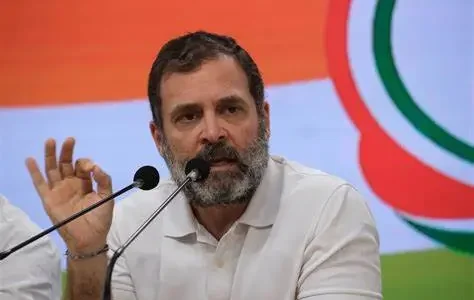As Jammu and Kashmir participates in the second phase of its assembly elections, Rahul Gandhi, the Leader of Opposition in the Lok Sabha, urged voters to support the INDIA bloc, emphasizing that each vote would help dismantle the “chakravyuh of injustice” established by the BJP and pave the way for prosperity in the region.
Congress president Mallikarjun Kharge echoed this sentiment, calling on voters to reflect on the “lost decade of betrayal” and the state’s downgrade to a Union Territory, encouraging them to consider the implications of their electoral choices.
As Jammu and Kashmir enters the second phase of its assembly elections, Congress president Mallikarjun Kharge emphasized that the region is poised for significant change. He urged voters to leverage their democratic rights to foster positive change and secure their futures. Kharge highlighted the challenges faced by the people, including the downgrade of the state to a Union Territory, rampant unemployment, and corruption, calling on the electorate to consider these issues when casting their votes.
In a post on X, he stated, “When you press the voting button on the EVM, do think about how your decade was lost in betrayal,” encouraging a strong turnout to ensure their constitutional rights. He welcomed first-time voters, emphasizing the potential for a brighter future through their participation.
Rahul Gandhi also addressed the people of Jammu and Kashmir, stressing that every vote for the INDIA bloc would help dismantle the “chakravyuh of injustice” perpetuated by the BJP. He condemned the BJP government for stripping the region of its statehood and called for a large voter turnout to reclaim their rights and promote prosperity.
Additionally, Congress general secretary Priyanka Gandhi Vadra highlighted the importance of the voting right, which she asserted had been diminished over the past decade due to restrictions on free expression regarding essential services and representation. She urged citizens to use their votes to choose a government that would address their needs for better livelihood, employment, and local issues.




